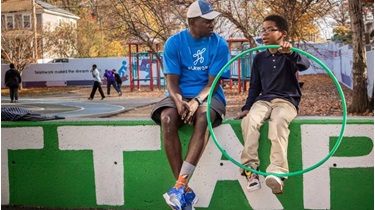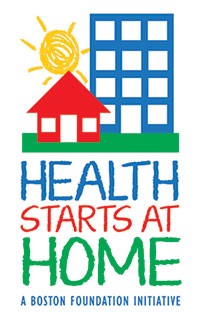
Health + Wellness
Overview
Our vision for the Health and Wellness impact area is to promote and advance health equity conditions in which everyone- across all forms of identity- has the opportunity to attain their best health. We do this by:
- Leveraging our platform and resources to build mission-driven, collaborative partnerships to collectively address some of the biggest drivers of health inequities – conditions that create systemic barriers that disrupt individual(s) and communities’ ability to thrive.
- Catalyzing efforts to collaboratively build and sustain conditions that allow for improved health outcomes and increased quality of life, particularly among vulnerable populations.
The Health and Wellness impact area consists of three major investment strategies that are: Obesity prevention, Social Determinants of Health and Stress and health.
Our Strategy
Strategy in Detail
Obesity prevention
Our goal for the obesity prevention strategy is to facilitate shifts in institutional practices to support engagement in healthy behaviors associated with obesity prevention, most visibly through the support of programs that encourage youth physical activity.
Social Determinants of Health
Our goal for this strategy is to enhance clinical-community linkages and cross-sector partnerships to eliminate barriers that disrupt equitable access across the Social Determinants of Health.
Social Determinants of Health (SDOH) are commonly referred to as the conditions and societal circumstances in which people are born, live, work and age. Research has identified a wide range of social factors that are associated with differences in health outcomes. They include political, socioeconomic and cultural constructs, as well as place-based conditions such as accessible healthcare and education systems, safe environmental conditions, neighborhood design (e.g. sidewalks) and availability of healthy food.
This investment is considered to be cross-cutting and will help to inform ways to strengthen our work. Health Starts at Home is a key initiative that supports the SDOH Strategy that brings together housing and healthcare organizations to support work that demonstrates the positive benefits of stable, affordable housing on children’s health outcomes.
This initiative builds off of the strong relationships the Boston Foundation possesses with anchor institutions, such as healthcare, in addition to Greater Boston’s community-based organizations to foster clinical-community linkages and influence a level of systems change that is powered by community voice.
Grantee Spotlight: Sportsmen's Tennis & Enrichment Center
Sportsmen's Tennis & Enrichment Center is the first indoor non-profit tennis club built by and for the African American community located in Dorchester, MA. Sportsmen's mission is to build leaders on the court, in the classroom, and in the greater community by providing academic, wellness and social development programs alongside recreational and competitive tennis instruction for youth and adults.
The Boston Foundation's grantmaking supports STEC's signature efforts for to expand physical activity for adults and youth, through programs such as the Center for Community Wellness and Match Point, which makes healthy, fun, physical activity through tennis available to the 10,000 youth ages 5-18 who live and/or attend school in the surrounding neighborhoods of Dorchester, Mattapan and Roxbury.



